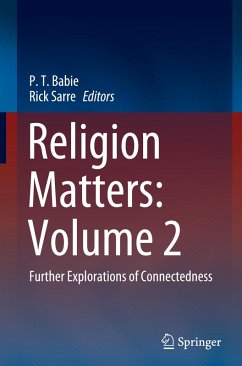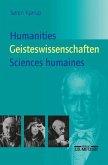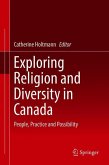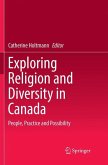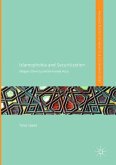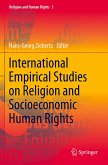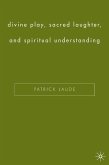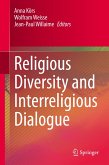This book constitutes the second volume of 'Religion Matters: The Contemporary Relevance of Religion' (Springer, 2020). Offering a fresh and much-needed perspective, it explores the role of religion in the modern, neo-liberal world. The book acclaims that 'religion' is a contextual and contested term, which is extensively discussed in the Introduction.
Designed to be read selectively, this book allows readers to delve into topics and traditions of specific interest without the necessity of reading the entire volume. In contrast to volume 1, where contributors critically engaged with religion and various disciplines, this book poses a fundamental question: Can religion contribute to the discipline under consideration?
Authors were selected based on their ability to address this question. Some chapters concluded that religion may offer very little to the discipline under consideration, highlighting the value of volume 1's critical stance on the place of religion incontemporary society. However, the project's overall aim remained somewhat unfulfilled, leading to the creation of this second volume.
The primary omission from the first book was a comprehensive exploration of the sciences and health sciences, which this second volume aims to rectify. Furthermore, additional authors were chosen to investigate the nature of connectedness facilitated by religion, horizontally through membership within wider communities, societies, cultures, or religious traditions, and vertically by examining historical relationships within a particular faith tradition, culture, community, or society. This volume also broadens its focus to include non-Christian perspectives, Indigenous perspectives, and an increased representation of female contributors.
Designed to be read selectively, this book allows readers to delve into topics and traditions of specific interest without the necessity of reading the entire volume. In contrast to volume 1, where contributors critically engaged with religion and various disciplines, this book poses a fundamental question: Can religion contribute to the discipline under consideration?
Authors were selected based on their ability to address this question. Some chapters concluded that religion may offer very little to the discipline under consideration, highlighting the value of volume 1's critical stance on the place of religion incontemporary society. However, the project's overall aim remained somewhat unfulfilled, leading to the creation of this second volume.
The primary omission from the first book was a comprehensive exploration of the sciences and health sciences, which this second volume aims to rectify. Furthermore, additional authors were chosen to investigate the nature of connectedness facilitated by religion, horizontally through membership within wider communities, societies, cultures, or religious traditions, and vertically by examining historical relationships within a particular faith tradition, culture, community, or society. This volume also broadens its focus to include non-Christian perspectives, Indigenous perspectives, and an increased representation of female contributors.

